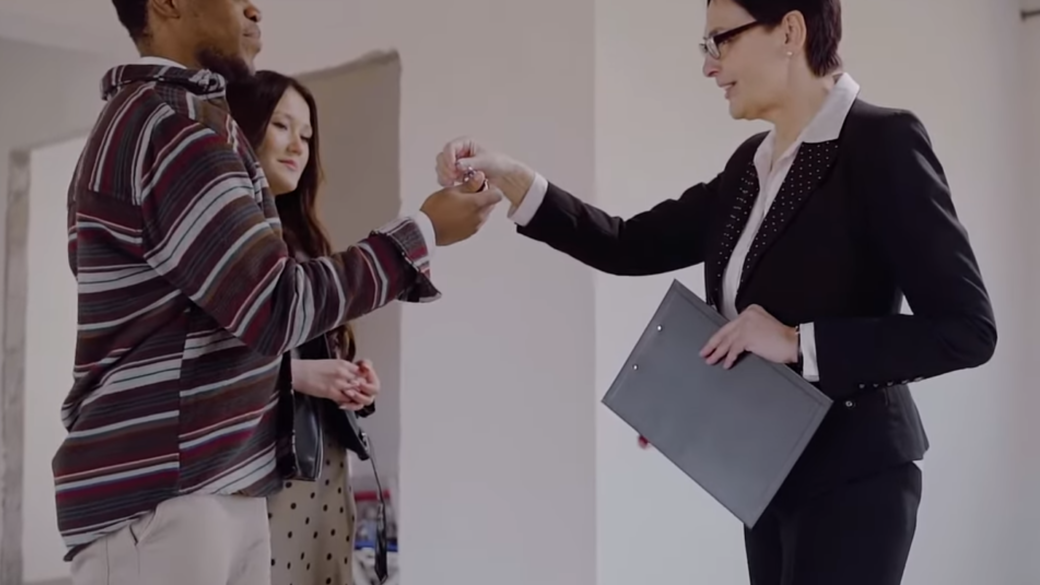Can a Landlord Look in My Closet?
Renting a home sometimes prompts concerns about privacy and the degree to which landlords have access to particular parts of the home. In this post, we’ll discuss some typical issues tenants might have about where their rights as tenants end and those of their landlord’s begin.
We’ll cover whether a landlord has the right to search your bedroom, closet, desk, mailbox, bins, backyard, safe, and other places of the residence. The specific instances in which they might be able to will be discussed. We’ll also look at whether a landlord is allowed to invite other individuals to view the house, look over your fence or look through your window.
If you want to also know if your landlord can take photos during an inspection, click here.
Can a Landlord Look in My Closet?
In most cases, landlords are allowed access to rental units for home inspections, repairs and maintenance. But can a landlord look in you closet? The tenant’s privacy should not be violated by this access, though. You have the right to privacy as a renter, including closets and other personal spaces.
A landlord is legally allowed to enter the property with reasonable notice but unless there is an extremely serious reason for them to, such as a structural damage or a suspected insect infestation, they should not check inside your closet. The landlord might need to inspect your closet to look for potential entrance ways or nests, for instance, if there have been several reports of rodents in the rental.
Can a Landlord Look in My Bedroom?
Bedrooms are seen as private spaces within the rental home, much like closets. Landlords must adhere to privacy regulations by not entering or peeking inside your bedroom without permission. Nonetheless, the landlord can enter the bedroom with adequate notice if there is a legitimate reason for entrance, such as a maintenance issue.
For example, the landlord might have to enter the property, conduct an inspection, and make necessary repairs if there is a suspected water leak in the ceiling of your bedroom. However, unless necessary, they should not be moving any of your personal belongings in the process.
Can a Landlord Look Through Your Stuff?
Renters have the right to expect that during a landlord visit, their personal belongings won’t be checked. A landlord may enter your rented home with adequate notice, but they are not allowed to search through your possessions.
If you think your landlord has gone too far in this, you might be entitled to file a complaint. If there is a specific, legitimate reason to do so, such as searching for a gas leak, the landlord might need to move your belongings in so they can access the gas lines.
Can a Landlord Look Through My Desk?
Your desk is regarded as private property, just like your bedroom and wardrobe. Without a precise, justifiable cause, a landlord shouldn’t go into your desk or any other personal storage areas. Your privacy would be violated if they did that.
The landlord might need to examine your workstation and the surrounding surfaces, though, if there is a compelling cause, like looking into a termite infestation, in order to assess the damage and make plans for elimination.
Can a Landlord Look for Mail in the Mail Hut?
Your mail is confidential and cannot be read by your landlord because of privacy regulations. In order to inspect a tenant’s mail, landlords shouldn’t enter the mail room or mailbox. This is illegal and regarded as an invasion of privacy.
But, as long as they don’t interfere with or read the tenants’ mail, landlords are permitted to access the mail hut. This includes situations when they need to undertake maintenance or repairs, such as replacing a broken lock.
Can a Landlord Look Through Your Bins?
While landlords are entitled to keep their premises safe and tidy, they shouldn’t violate your privacy by rummaging through your trash cans. If a landlord has issues with cleanliness or appropriate garbage disposal, they ought to talk to you about them rather than going through your garbage.
The bins may need to be inspected, if the landlord has reason to believe that unlawful activity—such as the disposal of dangerous goods in the trash—is taking place.
Can a Landlord Look in the Backyard Without Permission?
Generally speaking, landlords have access to exterior spaces like the backyard for repairs, maintenance or inspections. Similar to how they would for interior sections of the property, they should give sufficient warning before accessing these spaces.
You may have cause to file a complaint if you believe your privacy has been invaded by a landlord going into your backyard without your consent. A landlord might legitimately need to access the backyard to fix overgrown plants that could start a fire or to do regular maintenance on outdoor services.
Can a Landlord Bring Other People to Look at the Property?
The right to present a rental home to potential purchasers or renters belongs to the landlord. Before allowing new renters to move in, they must give the existing occupants enough advance warning. The tenant’s privacy may have been violated if sufficient notification wasn’t given.
For instance, if the landlord intends to sell the property, they may invite prospective purchasers to visit the house after giving the renter at least 24 hours’ notice.
Can a Landlord Look in Your Safe While Doing an Appointment Inspection?
During an inspection, a landlord has no authority to enter or examine a tenant’s personal safe. Safes are regarded as private property, thus opening one without consent is obviously an invasion of the tenant’s privacy. You may have justification to file a complaint or take legal action if a landlord insists on opening your safe for inspection.
Nonetheless, the landlord might need to call the police to look into the problem if they have cause to believe that the safe contains unlawful things or constitutes a risk to the property.
Can I Peep Through My Tenant’s Window to Check if They’re Home as a Landlord?
It is inappropriate to look through the window to see if the tenants are home, without their permission. You must give your renter enough notice before entering their house or making contact with them in order to protect their right to privacy.
If someone is seen peeping through windows, it might lead to strained relations between the landlord and tenant since it can be viewed as intrusive. However, in an emergency circumstance, such as a fire or gas leak, a landlord might need to see out the window to evaluate the situation before entering.
Can a Landlord Look Over My Fence?
Like with other areas of the property, landlords are not permitted to look over a tenant’s fence without the tenant’s permission. This behavior can be perceived as a privacy infringement and result in complaints from renters. Whenever a landlord has to observe or enter the space beyond the fence for a valid cause, they must give the tenant sufficient advance notice and engage in an open dialogue.
For instance, the landlord might need to peek over the fence to assess the issue and make arrangements for any necessary cleanup or repairs, if a neighboring property reports damage caused by a tree limb that fell from your rental home.
Conclusion
Finally, to answer the question if a landlord can look in you closet; tenants have a right to expect privacy in the rental homes they are living in. Despite having the right to enter the property for maintenance, inspections, and repairs, the landlord must respect the tenant’s personal space and belongings. Both landlords and tenants must be aware of their responsibilities in order to keep an amicable and sincere relationship.
In general, landlords must have a valid reason before opening closets, windows, desks, safes and mail boxes. They must also avoid peeking a neighbor’s trash can or over their fence without that neighbor’s consent.
Nevertheless, there are a number of situations where a landlord would be allowed to investigate specified sections. This includes when making repairs, dealing with a pest infestation or ensuring the safety of the property and its occupants. It’s crucial to address any privacy violations you think your landlord may have committed. If necessary, seek legal guidance in order to protect your rights as a tenant.
Both landlords and renters may promote a good living environment and prevent disputes by respecting the proper boundaries and keeping lines of communication open.


